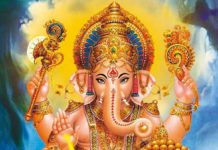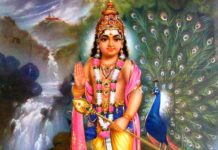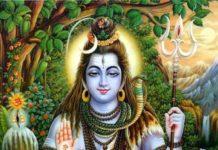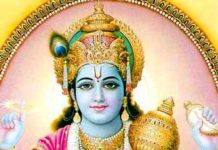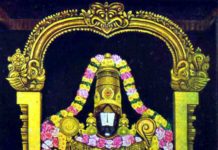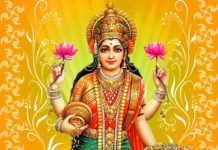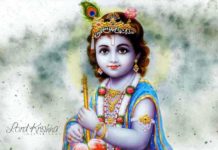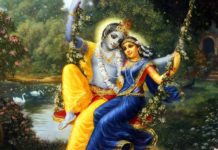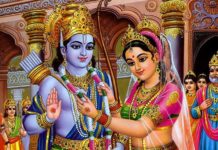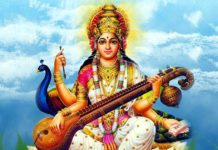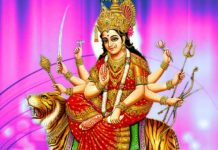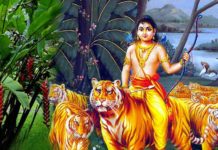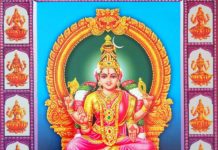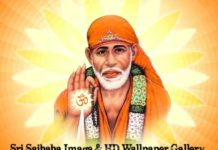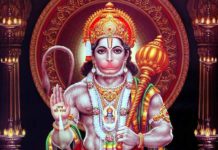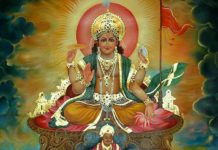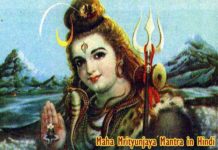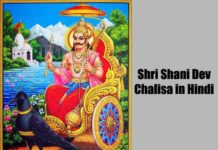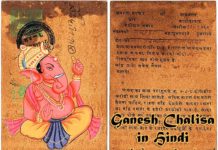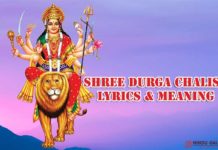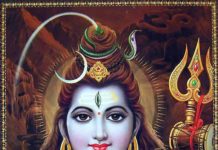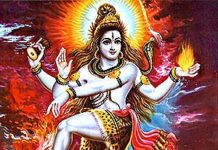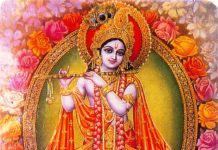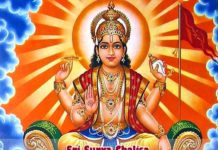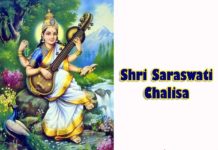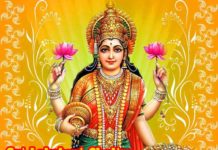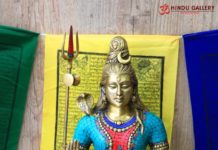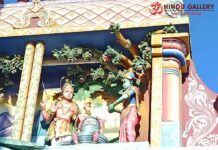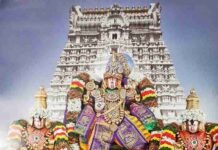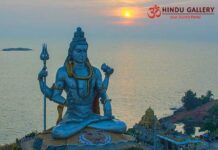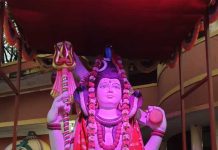Deepavali is one of the major festivals celebrated across India. The term “Deepavali” denotes rows and rows of lighted lamps. The festival occurs on the Krishna Paksha Chathurthasi of the Ashwin month as per Amantha and Karthika month as per Purnimantha Calendars.
It occurs on the night of Wednesday, 30th October 2024 and the day time of Thursday, 31st October 2024. In some places it covers Thursday, 31st October 2024 and Friday, 1st November 2024.
The exact duration of the Chathurthasi Tithi is to be obtained from the respective regional calendars. The number of days of celebration differs from region to region.
Considering the significance at the respective regions, the festival of Deepavali lasts from two days to five days across India. Deepavali is also called as Diwali, Deepa Prathipadha Utsava and Deepamalika.
Legend
There are a few legends pertaining to the celebration of Deepavali festival. A few of them are narrated here.
Sri Rama
It is believed that Bhagwan Sri Ram had returned to Ayodhya after rescuing Sri Sita Devi from Lanka on this day.
His day of return to Ayodhya is celebrated as Deepavali.
Sri Krishna
It is believed that Sri Krishna had killed the demon named Narakasura who had ill-treated others. His consort Sri Sathya Bhama, the incarnation of Sri Bhuma Devi had helped Him in the war.
At the time of his death, Narakasura had requested Sri Krishna that the day of his death should be celebrated by all happily. Sri Krishna had granted the boon.
Festivities
The preparations for Deepavali commences soon after Dasara. Normally, Deepavali is celebrated in a very grand manner.
General
People clean their homes prior to the Deepavali festival. They draw rangolis in and out of the house and decorate their homes. It is believed that keeping the house clean and tidy will invoke the arrival of prosperity.
They buy new dresses for this festival. Bursting of crackers is another important aspect of the festival.

Preparation of sweets and savories and sharing them all with friends and relatives is another hallmark of this festival.

Dhanteras
Dhanteras which is also called as Dhan-Trayodashi and Dhanvantri Trayodashi occurs on the second day of Deepavali celebrations.
This day occurs on the Krishna Paksha Trayodashi just prior to Deepavali. It occurs on Tuesday, 29th October 2024.
Sri Dhanvantri is the Lord of medicines. When the cosmic ocean was churned for getting the amrut, it was only Sri Dhanvantri who had emerged with the nectar pot in His hands. Before Him, Sri Mahalakshmi had emerged.

Sri Dhanvantri is considered to have the attributes of Sri Maha Vishnu as the healer.
As per the legend, once there was a King named Hima. He had a son and daughter-in-law. They were newly married. The Prince had a curse that he would expire on the fourth day of his marriage.
However, the Prince’s wife was determined to save her husband. She had heaped all the ornaments and jewels at her possession at the entrance of the room. Her husband was sleeping inside the room.
She had lit lots of lamps near the room entrance. With the reflection from the jewels, the place was dazzling. She kept singing prayer songs throughout the night. Sri Yama Dharma Raja, the Deity for conclusion of lives was determined to take away the life of the Prince as per destiny.
So, he took the form of a serpent and placed himself atop the mound of jewels. However, the glitter of the lamps and their reflection blinded him. The prayer songs sung by the Prince’s wife were very melodious and causing sleep. So, Sri Yama just ended up sleeping on the heap.
On the next morning, Sri Yama had realized that he had missed his duty and it was made possible due to the powers of devotion of the Prince’s wife.
He had blessed her. From then onwards, that Trayodashi is also being called as ‘’Yam deep dhan’’. The custom of keeping the lighted lamps for the whole night had begun from that day.
Hence the celebration of Dhanteras signifies good health and long-life. The day is also considered auspicious to do Lakshmi Puja to attract ‘’dhan’’ which means the wealth. Lamps made of earthen clay are lit. It is considered auspicious to buy atleast one or two utensils on this day. Making donations to the needy and poor is also considered auspicious. Dhanteras is also known as Chotti Deepavali.

It may be noted that the sanctum of Sri Annapurna Devi at Varanasi is opened on this day for the darshan of devotees. The sanctum is kept open for four days.
Naraka Chathurthasi
The day next to Dhanteras is the actual day of Deepavali. The night having the Krishna Paksha Chathuthasi Tithi is the point of commencement of Deepavali. It spreads upto the ensuing day-time.
It occurs on the night of Wednesday, 30th October 2024 and the day time of Thursday, 31st October 2024. In some places it covers Thursday, 31st October 2024 and Friday, 1st November 2024.
As Sri Krishna had granted the boon to Narakasura that his death would be celebrated by the people, the day is called as Naraka Chathuthasi.

Devotees rise very early in the morning. Those residing near rivers and water bodies take holy dip. On the day of Deepavali, all water is considered as virtuous and auspicious as Ganga Jal.
Down South, the practice of Mangala Snanam is followed. The brass or bronze pot used for boiling the water is cleaned and decorated with Lime, Chandan and Kumkum.
The wooden planks in the house are cleaned and decked up with Rangoli. Some herbal ingredients are added to the sesame oil and the oil is heated.
The kids and the youngsters of the household are asked to sit on the wooden planks. The elders of the family apply the heated oil on the top of the heads of the youngsters chanting various names of Sri Maha Vishnu. The youngsters then go to take Snanam which means taking bath from the boiling water sourced from the sacred metal pot.
After their bath, the elders give new dresses to the family members. The dresses are decked up with turmeric at the corners. The youngsters prostrate before the elders before getting the dresses.
After wearing new dresses, they are given ‘’Deepavali lehyam’’ which is an ayurvedic paste. The paste is home-made and is full of medicinal and curing qualities. After partaking of lehyam, the crackers are given to the family members to burst outside the house.
The sweets and savories prepared for the Deepavali are then distributed to the neighbors, friends and nearby relatives.
Sumptuous break-fast and lunch are prepared and partaken. Some people eat non vegetarian food also on this day.
The whole day of Deepavali is colorful to look at, has colorful tasty dishes to eat, offers colorful garments to wear, provides noisy and colorful crackers to burst.
The Deepavali arrives with the bang. The day is spent with enjoyment with family and friends. The festival gives one the positive energy and promotes overall goodwill.
Kali Chaudas
This festival is celebrated on Naraka Chathurthasi day. It is believed that doing Puja to Deities at night shall ward off the possible evil effects of bad spirits. In effect, the negativities are removed. It occurs on Thursday, 31st October 2024.

It is predominantly celebrated in Western States and Sri Kali Mata is ardently worshipped. The festival is also known as Bhut Chathurthasi, Naraka Nivaran Chathurthasi and Roop Chaudas.
Hanuman Puja
At Ayodhya, special puja is done to Sri Hanuman at Hanuman-garhi temple.
As per the legend, Deepavali is the day of return of Sri Rama to Ayodhya after His exile in forest for fourteen years.

When Sri Ram returned to Ayodhya, he was accompanied by Sri Sita Devi and Sri Lakshman. Sri Anjaneya Swamy also had accompanied Him.
As Sri Hanuman was new to Ayodhya, Sri Ram wanted to ensure that Sri Hanuman feels happy at Ayodhya.

So, Sri Ram had ordained that during Deepavali, Sri Hanuman had to be worshipped first. Hence the day is dedicated for doing Puja to Sri Hanuman. Hanuman Puja occurs on Wednesday, 30th October 2024.
It is believed that doing Hanuman Puja on Deepavali day shall ward off evil spirits and forces.
Kamala Jayanthi
Sri Kamala is one of Dasha Maha Vidya Devi Murthies. The day of Deepavali is also considered as the day of incarnation of Sri Kamala Devi. Kamala Jayanthi occurs on Friday, 1st November 2024.
Sri Kamala Devi is considered as the manifestation of Sri Maha Lakshmi, the consort of Sri Maha Vishnu.

The day is also celebrated as Kamala Mahavidya Jayanthi. On this day, Sri Kamala Devi is worshipped in the Tantric form of worship.
At most of the places, the festival is combined with the Lakshmi Puja.
Kali Puja
This Puja is predominantly celebrated in the Eastern part of India. The festival is also called as Shyama Puja and Maha Nisha Puja. Kali Puja occurs on Friday, 1st November 2024.
Sri Kali Devi and Her manifestations are ardently worshipped on this day.

As per the legend, Sri Durga Devi had taken the form of Sri Kali to diminish the demons named Shumba and Nishumba. After destroying them, She was uncontrollable. Hence, Bhagwan Shiva Himself had placed Himself before the fiery Goddess. With rage, She put Her foot on Bhagwan Shiva. However, soon on contact, She let go of anger and her tongue came out in embarrassment.
Sri Kali Mata is worshipped in Tantric form chanting mantras. Huge pandals are set up to conduct the Puja. The festival is also called as Dipanvita Kali Puja.
Sharada Puja
On Deepavali day, Sri Saraswathi Devi is worshipped as Sri Sharada Devi. Sharada Puja occurs on Friday, 1st November 2024.

Elaborate archana is done to Sri Saraswathi for invoking knowledge and wisdom.
Chopda Puja
This Puja marks the opening of new books of account for business community. The new ledger books are marked with Chandan and Kumkum and kept in Puja. It occurs on Friday, 1st November 2024.
The idols / pictures of Sri Saraswathi, Sri Ganesh and Sri Lakshmi are kept in Puja place. The new ledgers are kept in front of the Deities.
Elaborate archana / puja are done to the Deities. Special prayers are held to make the ensuing new business year prosperous.
Lakshmi Puja
This Puja is done predominantly to invoke the blessings of Sri Mahalakshmi for wealth, happiness and prosperity. It occurs on Friday, 1st November 2024.

As per the legend, it is believed that Sri Mahalakshmi roams around the earth on this day. The houses are cleaned and decorated with rangolis. Rows and rows of lamps are lit and kept in lines inside and outside the houses.
It is ardently believed that Sri Mahalakshmi visits the cleanest (germ free) houses and She stays there virtually if She is happy with the house.
Special Pujas are done to the combined Deities of Sri Ganesh, Sri Saraswathi, Sri Lakshmi, Sri Durga and Sri Kubera.
The concept of the Puja is to invoke and welcome good health, prosperity, wisdom, courage and happiness into the family. Family members and friends also greet each other wishing them all forms of goodness.
The Puja is invariably done in the evening time. Various sweet dishes are prepared and offered as Neivedyam. The Prasad is distributed and exchanged amongst friends and relatives.
Kedara Gowri Vrat
This festival is celebrated in Tamil Nadu and other Southern parts of India on the next day of Deepavali. Ideally, this is a 21day festival commencing on the Shukla Paksha Ashtami of Purattasi (Bhadra padha) month concluding on the Amavasya day next to Deepavali. In practice, this Vrat is mostly observed on the Amavasya day next to Deepavali. It occurs on Friday, 1st November 2024.

This Vrat is observed to invoke the blessings of Bhagwan Shiva and Sri Parvathi Devi.
As per the legend, once a devotee had ardently prayed to Bhagwan Shiva purposefully excluding Sri Parvathi Devi. This had annoyed Sri Parvathi.
She had asked Sage Gauthama as to how to make the Shiv-Bhakts to include Her also in their prayers. The Sage suggested that She had to observe Vrat for 21 days invoking Bhagwan Shiva. She did the Vrat devoutly.
On 21st day, Bhagwan Shiva was much pleased with Her Vrat and made Her the left part of His person. From then on, He was hailed as Sri Ardha Nareeshwara. As Sri Parvathi Devi is part of Bhagwan Shiva, anyone praying to Bhagwan Shiva ends up praying to Sri Parvathi Devi as well.

The devotees perform Puja to Sri Shiva and Sri Parvathi at their homes. They do archana reciting Slokas. Various dishes (21 types) are made and offered as Neivedyam. The red color thread is kept in the Puja and the same is tied around the wrists at the conclusion of the Puja.
The devotees also visit Shiv temples and offer Neivedyam at the sanctums of Sri Shiv and Sri Ambal.
Govardhan Puja
This occurs after Deepavali on Saturday, 2nd November 2024.
As per the legend, when Sri Krishna was a kid, He used to play with his cowherd friends. During rainy season, the people used to invoke Lord Indra and observe Indra-Utsav. When Sri Krishna asked them the reason for the festival, they told Him that only Indra was providing sustenance to them and their cattle.
Sri Krishna told that only the Govardhan hill was providing food to them and the cattle and that they should worship only the hill and not Indra. The people accepted His words. They did not observe Indra Utsav that year.
Lord Indra got angry. He surmised that a small kid had diverted the minds of the people and prevented him to get proper Puja. So, he ordained for a torrential rain.
Sri Krishna had lifted the Govardhan hill with His little finger and provided shelter to the people and cattle. The rain lasted for seven days. Indra had realized the divine power of the Child. He felt ashamed of himself for wanting people’s adulation when the real God is present amongst them.

He prostrated before Bhagwan Sri Krishna asking for forgiveness. Sri Krishna had granted the pardon.
To signify the lifting of mountain by Sri Krishna, the devotees make mountains of food and offer as Neivedyam to Sri Krishna. The Prasad is then distributed to others.
The festival is also called as Annakut. It is grandly celebrated in Mathura, Vrindavan and other parts of Braj region (banks of Yamuna) in India.
Bali Pratipada
This festival occurs on the Amavasya day next to Deepavali. This marks the day of annual return of Sri Maha Bali Chakravarthy on earth. The festival is predominantly observed in the Western part of India and it invariably falls on the first day of Kartika month. It occurs on Saturday, 2nd November 2024.
The emergence and end of Sri Maha Bali is associated with Sri Vamana Avathar, the fourth incarnation of Sri Maha Vishnu.

The festival is observed by people depicting the life history of Sri Maha Bali through Rangolis on the floor. Even tarpan is offered to the departed members of the family.
The festival is also called as Bali Padyami, Padva, Vira Pratipada, Dyuta Pratipada, Bestu Varas and Varsha Pratipada.
Dyuta Kreeda
Dyuta means the game of dices. It is believed that Bhagwan Shiva had invented the game of dices. This festival also occurs on the Amavasya day next to Deepavali. It is on Tuesday, 14th November 2023.

It is believed that Bhagwan Shiva and Goddess Parvathi had played the game of dices on this day. Some devotees play the game only as a ritual amongst family members and not as a gamble.
The festival is also called as Karthika Pratipada.
The festival also heralds the commencement of Gujarati New year.
Bhaiya Dooj
This occurs on the second day from Deepavali. This also is the last day of Deepavali festivities. This is celebrated as the community festival. It occurs on Saturday, 2nd November 2024.
This festival marks the prayers done by women for the long life and welfare of their brothers. They put tilak on the foreheads of their brothers and receive gifts in return.
As per the legend, Sri Krishna had visited His sister Subhadra after diminishing Narakasura. She had put the tilak on His forehead. She gave Him the victory feast as well.

There is another belief whereby Sri Yama had visited his sister Yami on this day. She gave him a warm welcome, applied tilak on his forehead and offered him a grand feast. After the meal, the siblings had talked for a long time to their hearts’ content. Sri Yama had said that every year he would visit his sister on that day. Hence this festival is also called as Yama Dwithiya.
The festival is also called as Bhau Beej, Bhai Dooj, Anna Chellala Pandaga and Bhagini Hastha Bhojanam.
To sum up, Deepavali is the festival for the happiness of the family, friends and the community in general.






